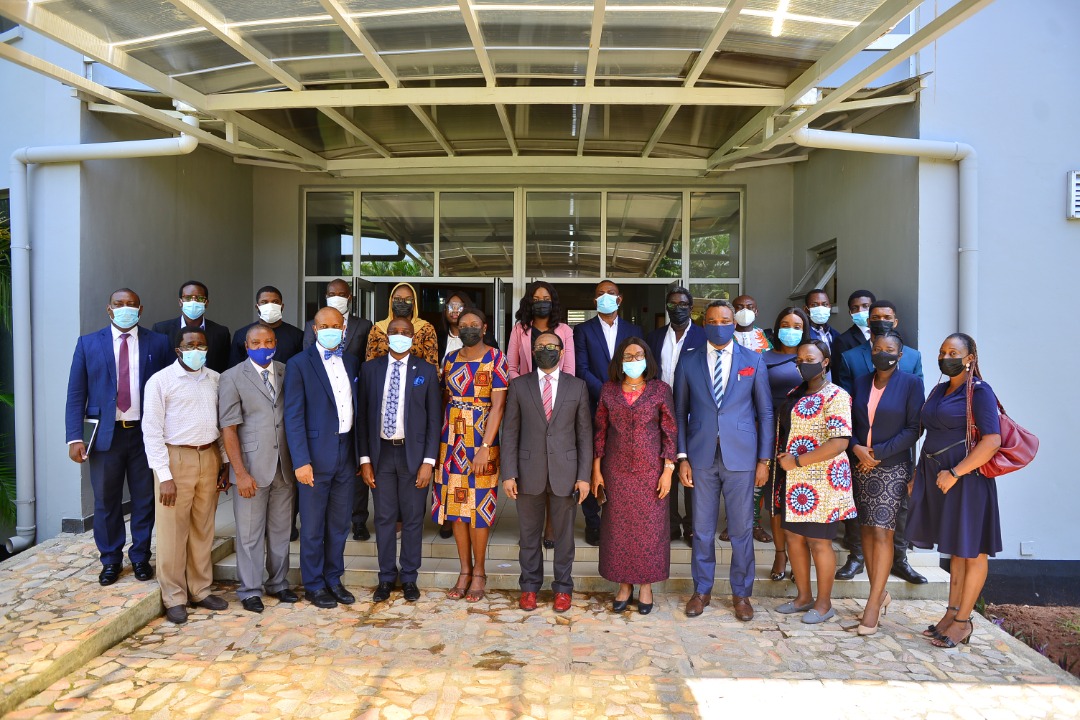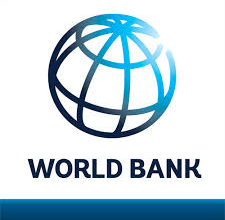LBS Sustainability Centre, Bloom Public Health Lead Study To Map Pharmaceutical Manufacturing Value Chain In Nigeria

PRESS RELEASE: The Lagos Business School Sustainability Centre hosted stakeholders in a launch meeting for the new research study titled ‘Nigeria Pharmaceutical Manufacturing Value Chain Mapping.’
The study is an initiative of the LBSSC and Bloom Public Health in partnership with the Pharmacists Council of Nigeria (PCN), National Institute for Pharmaceutical Research and Development (NIPRD) and PharmaAccess Group.
The meeting was held on Thursday, June 17, 2021, as a hybrid event with speakers and participants at the Lagos Business School and online.
Speaking on the importance of the study, Dr Franklin Ngwu, Director, LBS Sustainability Centre remarked that it is so important that our local industries are empowered to deliver value to the citizens and the larger African Market.
He emphasized that the study will provide evidence-based information and recommendations to drive the much-needed growth in the Nigerian Pharmaceutical Sector.
According to Prof. Chimezie Anyakora, CEO of Bloom Public Health, the study comes at a critical time in Nigeria when the pharmaceutical sector is going through suppression.
The pharmaceutical manufacturing ecosystem in Nigeria is currently constrained by a vicious cycle of poor demand and poor supply, which creates an obstacle to boosting the local manufacture of pharmaceutical products.
This study is therefore necessary because the pharmaceutical sector is changing, the regulatory landscape is changing, there is an untapped market segment and a need to drive down cost.
The study is important because we need to bring to the fore the economic importance of investing in the pharmaceutical sector in Nigeria. There is a potential for Nigeria to provide and control over 60% of health products consumed in the Economic Community of West African States (ECOWAS) region if the manufacturing capacity in the pharmaceutical industry is strengthened.
According to Prof Chimezie Anyakora, CEO, Bloom Public Health, the main objectives of the study. The objectives of the study are to identify the value-adding activities required in the sector, identify the main performance points and map the market size of each value-adding activity so as to attract investors.
“With a population of 201 million (2019, World Bank), Nigeria is the largest and fastest-growing economy in Africa with the highest disease burden in the Sub Saharan region. The Nigerian pharmaceutical sector keeps growing at a rate of 9% each year and is expected to reach $4 billion by 2026 (McKinsey).
“There are over 100 pharmaceutical companies alone; some of them have a very advanced current GMP compliance, which grants them the liberty to export their products as well as be the rst point of call for donor investment in medicines and medical devices. This growth makes it possible for Nigeria to provide and control over 60% of health products consumed in the Economic Community of West African States (ECOWAS) region,” he said.
The study launch was well attended by major stakeholders in both public and private sector from the pharmaceutical industry including representatives from Pharmaceutical Council of Nigeria, Nett Pharmacy LTD, Nigeria Institute of Pharmaceutical Research and Development(NIPRD), Nigeria Natural Medicine Development Agency, PharmaAccess Group, Emzor Pharmaceuticals and many others who all endorsed the study.
Speaking at the launch, Dr Peter Adigwe, Director General, National Institute for Pharmaceutical Research and Development (NIPRID), lauded the project as a prestigious project which will mark a turning point for the pharmaceutical sector in Africa. He urged everyone to look beyond only nancial motivations for doing this project. He said we need to look at the big picture, beyond the Nigerian market, the Continental market is worth about $50Bn. According to him, if Africa can get the right kind of support and push this o the table, people will look back on this colloquium today and say this is where there was lit.
Also at the event was, Dr Elijah Mohammed, Registrar, Pharmacists Council of Nigeria (PCN) represented by Dr Amaka Okafor, Director, PCN (Lagos Chapter).
She remarked that research is known to be evidence-based and that is why PCN is happy to be partners in this project. Continuing, she said PCN has the database and is ready to render every source of support needed.
According to her, following the new pharmaceutical value chain policy from 2021-2025, no strategic plan is identi ed hence the need for this project.
She added that in addition to strategies for manufacturing, there should also be strategies for value chain activities because human resources are critical to success.
She concluded by saying PCN is developing a strategy to ensure there is adequate human support for the project.
Speaking on behalf of Emzor pharmaceuticals, Dr Okoli remarked that this initiative is important because it will shed a bright light on the pharmaceutical ecosystem and value chain and identify all products and services required for an efficient and viable sector.
The pharmaceutical industry would like to reduce the cost of doing business so there is a need to work with relevant stakeholders for the actualization of the dream.
The pharmaceutical industry is the bedrock of all health systems around the world as it is responsible for producing all the treatment options in various forms to essentially all disease states. It is no wonder that with the recent COVID-19 pandemic, the pharmaceutical industry was placed under pressure to nd a lasting solution to curb the spread of the virus. It is therefore an industry that is dynamic; a key asset to the global economy with endless opportunities and possibilities for investment.





